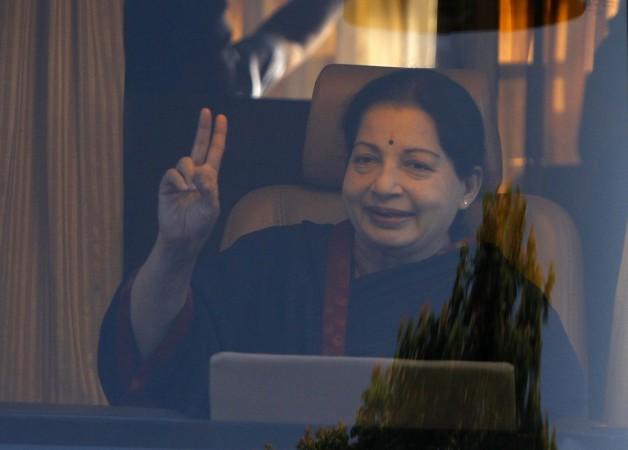
A petition was moved in the Supreme Court on Thursday seeking a direction to restrain AIADMK chief J Jayalalithaa from being sworn-in again as Tamil Nadu chief minister, expected on May 23, following her acquittal in a disproportionate assets case by the Karnataka High Court recently.
In his petition, advocate GS Mani has contended that the acquittal by the high court would not automatically suspend Jayalalithaa's disqualification from state assembly membership following her conviction by a special court of Bengaluru in the corruption case.
The petitioner has contended that the disqualification attracted by Jayalalithaa would not get obliterated by her acquittal by the high court unless the apex court decides which order - whether the order of conviction by the trial court or acquittal by the high court - was correct.
Besides this, Mani argued that Jayalalithaa could be administered the oath of the office only if the same was permitted by the apex court or after the expiry of 90-days limitation period for moving the apex court against the high court order.
The petition says that Jayalalithaa could not take advantage of the constitutional provision that permitted any person, without being a legislator, to be sworn in as the chief minister with the proviso of getting elected to the state assembly within a six-month period.
The petitioner held this would not be applicable to Jayalalithaa as she was disqualified from the membership of the state assembly following her conviction.
Seeking a declaration that Jayalalithaa had "no authority, no locus" and was "ineligible and disqualified" to hold the office of chief minister, the petitioner sought framing of the guidelines on the circumstances under which she could again become the chief minister.
Mani argued Jayalalithaa could not be chief minister until the apex court decided on her acquittal by the Karnataka High Court and she got re-elected to the state assembly.
Jayalalithaa, along with three others, was convicted by the Bengaluru court on September 27, 2014. They were subsequently awarded a four-year jail term. However, their conviction was reversed by the Karnataka High Court on May 11.

















